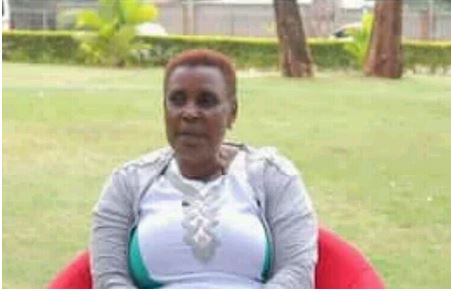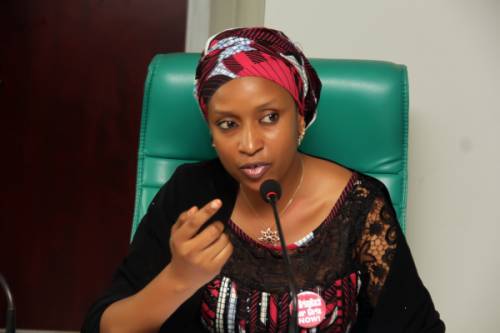Nigeria’s foremost Emeritus Professor of Law, David Adedayo Ijalaye, has passed away.
Ijalaye died on Thursday, 11 March 2021.
Although he publicly celebrated 90 in 2019, it is believed that the deceased, born in Owo, Ondo State, will clock 89 on 8 April.
The demise of the legal titan comes barely one year after his wife, Lady (Chief) Eunice Adejoke, with whom he had a son and three daughters, passed away.
Described by many as a rare gem, unforgettable icon and a father of legal academia, his demise sent shockwaves to the legal community in Nigeria and globally.
During Ijalaye’s recent birthday, President Muhammadu Buhari hailed his “consistency in ensuring competitive standards by supervising post-graduate thesis”.
The president said the “legal luminary has left his footprints indelibly in the sands of jurisprudence in the country, and generations to come will continue to extol his virtues”.
As Emeritus Professor, Ijalaye’s dedication and discipline to delivery of best results attracted many awards and enviable positions within and outside the academia like Dean, Faculty of Law; Deputy Vice-Chancellor and Chairman, Board of Postgraduate Studies of the Obafemi Awolowo University, Fellow of the Nigeria Institute of Advanced Legal Studies (FNIALS) and Fellow of the Nigerian Society of International Law (FNSIL).
The Nigerian Bar Association, National Judicial Council and the academia have variously celebrated Emeritus Professor Ijalaye for his contributions to the teaching and practice of law in Nigeria for more than 34 years before his retirement in 1998, and his consistency in ensuring competitive standards by supervising post-graduate thesis even after retirement.
The celebrated legal luminary left his footprints indelibly in the sands of jurisprudence in the country, and generations to come will continue to extol his virtues.
According to one of his former students at the Law Faculty, Obafemi Awolowo University, Ile Ife, Adewole Adebayo, Esq: “Ijalaye was an embodiment of jurisprudence and personification of erudition to the point where the man and law merged into a juristic and philosophical singularity. His type would never be seen again. That era would not be reenacted in the annals of legal scholarship where a conclave of academics assembled themselves for whole lifetimes of undivided and unalloyed commitment to research and teaching for the sake of the unfathomably pure joy of scholarship. In our days as his students, every utterance from Ijalaye’s mouth was a legal principle of profound fecundity”.
He added that “He was not only our teacher. He was retrospectively and simultaneously the teacher of our teachers, and in some cases, the teachers of the. teachers of our teachers. Ijalaye will forever be missed but he would never be missing.”
Ijalaye’s entire career was devoted to the law. He earned the degrees of LL.B., LL.M. J.S.D; and became a Senior Advocate of Nigeria (SAN).
Ijalaye was educated at Swedenbcrs Memorial School Owo (1938-45); Government School Owo (1945-46); Imade College, Owo, (1946-52); Hull University, England, (1960-63); Nigerian Law School, Lagos, (1963-64); the London University, (1964-65); Columbia University, New York (1969-70). He was called to the English and Nigerian Bar in 1963 and 1964 respectively. He then became a member of the Senate, Obafemi Awolowo University between 1967 and 1968 and later again in 1974. He was Prof. Law, Obafemi Awolowo University in 1974. Ijalaye had two different spells on the Council of Legal Education. First between 1974-78 and later in 1984-87. He was a member of the Owo Local Government Council (197 77) and Dean. Faculty of Law, Obafemi Awolowo University, Ile-Ife, (1974-78). He was Chairman, Committee of Deans, Obafemi Awolowo University. Ile-Ife (1975-78).
The deceased was chairman, Ondo State Scholarship Board, (1976-79andmd later Deputy Vice-Chancellor, University. The Ife (1978-80); mm, Council, University of Ife, 1978-80. He also served as Chairman, Board of Post-Graduate Studies, University of Ife, (1978-80).
Ijalaye was a visiting prof at the University of Ibadan between 1983 and 1984.
In the political world, Ijalaye held the position of Chairman, Establishment Committee of O’dua Investment Company Limited between 1984 and 87 and served as Attorney-General/ Commissioner for Justice in Ondo State from 1984 to 1987.
In the legal profession, Ijalaye worked as a member of the Disciplinary Committee, Nigerian Bar Association, (1984-87) and moved to the Nigerian Body of Benchers, (1984-87). He also served as Chairman of the Obafemi Awolowo University Consultancy Services, Ile-Member 1987. Ijalaye was a member of the Constitution Review Committee, (1987- 88), American Society of International Law; Member, International Council on Environmental Law; Legal Adviser to the Lome Peace Accord b/w Sierra-Leone and the Revolutionary United Front(RUF), May-June, 1999.
He served as Chairman, Federal Government Visitation Panel to Ahmadu Bello University, Zaria, Aug. 1999 to Oct 1999 and chairman of the Federal Government University Autonomy and Related Matters Committee March 2001- June 2001. He returned as chairman of Ondo State Scholarship Board in 2000 until 2019.
Ijalaye was a recipient of many awards including International Who’s Who in Education; Illustrated Plaque Award for distinguished services in education, Cambridge, England and Extension of Corporate Personality in International Law, 1978.
In 1978, he delivered the inaugural lecture of the University of Ife entitled “Nigeria and International Law: Today and Tomorrow”. He also delivered the 1981 Hague Lectures entitled: “Multinational Corporation and Indigenisation Measures in Africa”.
Despite his avid devotion to the law and his hectic work ethic, Ijalaye was an athlete and socialite known for his hobbies of table tennis and dancing.
A prodigious researcher and writer, some of his seminal academic and intellectual works include: The extension of corporate personality in international law by D. A Ijalaye( Book)
12 editions published between 1974 and 1978 in English and held by 298 WorldCat member libraries worldwide;
Indigenization measures and multinational corporations in Africa by D. A Ijalaye
1 edition published in 2008 in English and held by 20 WorldCat member libraries worldwide;
Indigenization measures and multinational corporations in Africa by D. A Ijalaye
5 editions published between 1981 and 1982 in English and held by 14 WorldCat member libraries worldwide;
Nigeria and international law: today and tomorrow: inafledgelingcture by D A Ijalaye (Book)
1 edition published in 1978 in English and held by 14 WorldCat member libraries worldwide;
The imperatives of federal/state relations in a fledgeling democracy: implications for Nigeria by D. A Ijalaye(Book)
3 editions published in 2001 in English and held by 13 WorldCat member libraries worldwide;
Faculty lectures by Kayode Eso(Book ) 4 editions published between 1989 and 1990 in English and held by 11 WorldCat member libraries worldwide;
Nigeria and international law: today and tomorrow by D. A Ijalaye( Book )
3 editions published in 1978 in English and held by 7 WorldCat member libraries worldwide;
Indigenization measures and multinational corporations in Africa by D. A Ijalaye published in 1992 in English and held by 3 WorldCat member libraries worldwide;
The Nigerian Extradition Decree 1966 by D. A Ijalaye;
1 edition published in 1970 in English and held by 2 WorldCat member libraries worldwide;
Recueil des Cours: Collected Courses of the Hague Academy of International
1 edition published in 1982 in English and held by 1 WorldCat member library worldwide
Concessional Admission of Underprivileged Students by D. A Ijalaye in Undetermined and held by 1 WorldCat member library worldwide;
Corruption in the public service of Nigeria: a nation’s albatross; 3rd Fellows’ Lecture of the Nigerian Institute of Advanced Legal Studies by D. A Ijalaye(Book)
1 edition published in 2008 in English and held by 1 WorldCat member library worldwide;
Nigeria and international law by D. A Ijalaye(Book)
1 edition published in 1978 in English and help Italy WorldCat member library worldwide
3 editions published between 1981 and 1982 in English and held by 4 WorldCat member libraries worldwide;
T.O. Elias and the law by D. A Italy
2 editions published in 1992 in English and held by 3 WorldCat member libraries worldwide;
Justice administered by the Nigerian courts by D. A Ijalaye( Book)
1 edition published in 1992 in English and held by 3 WorldCat member libraries worldwide.







